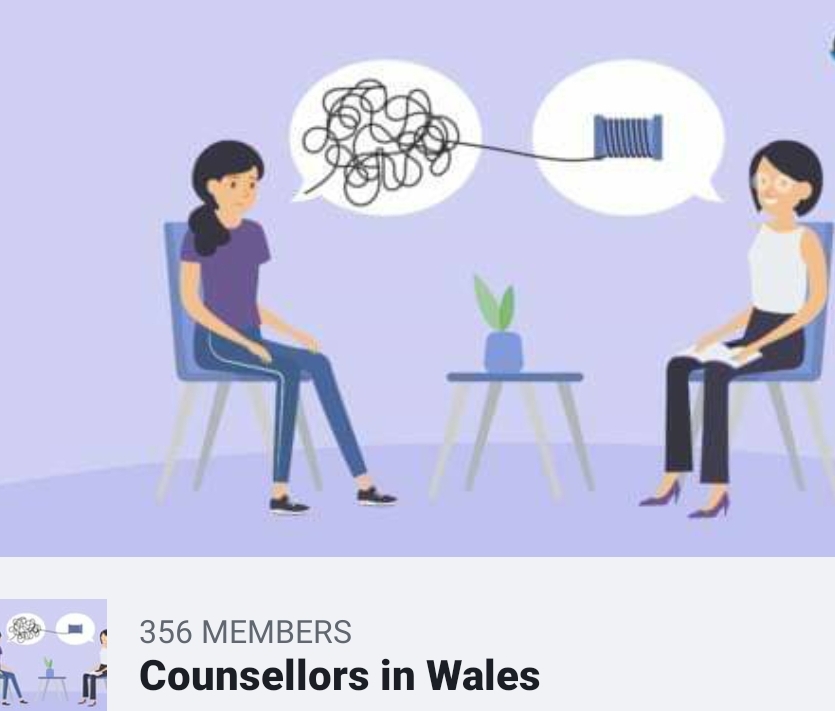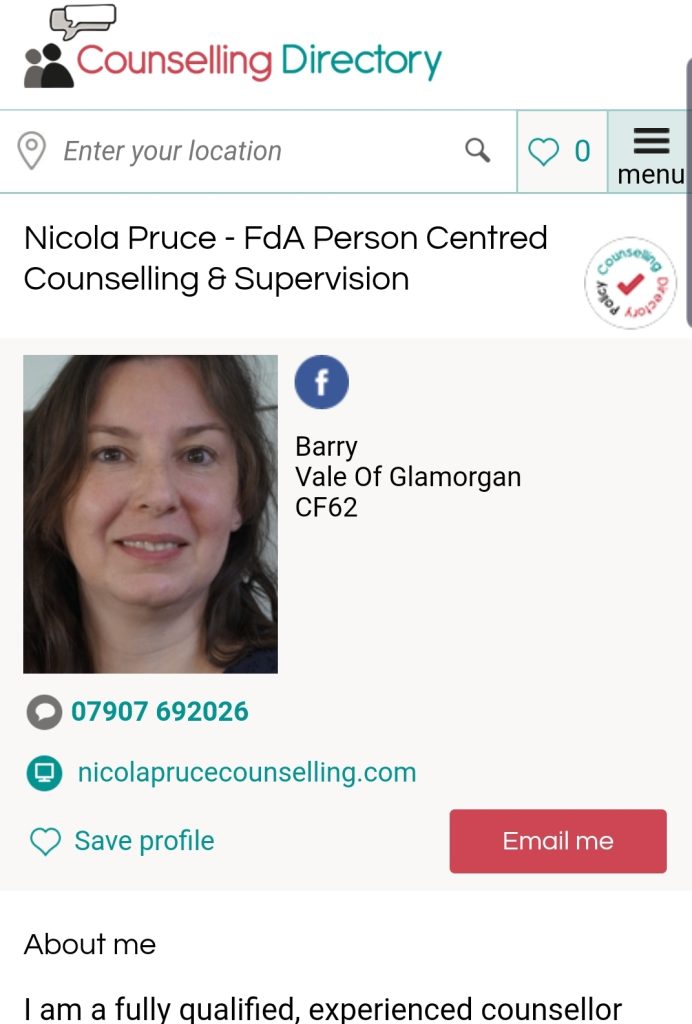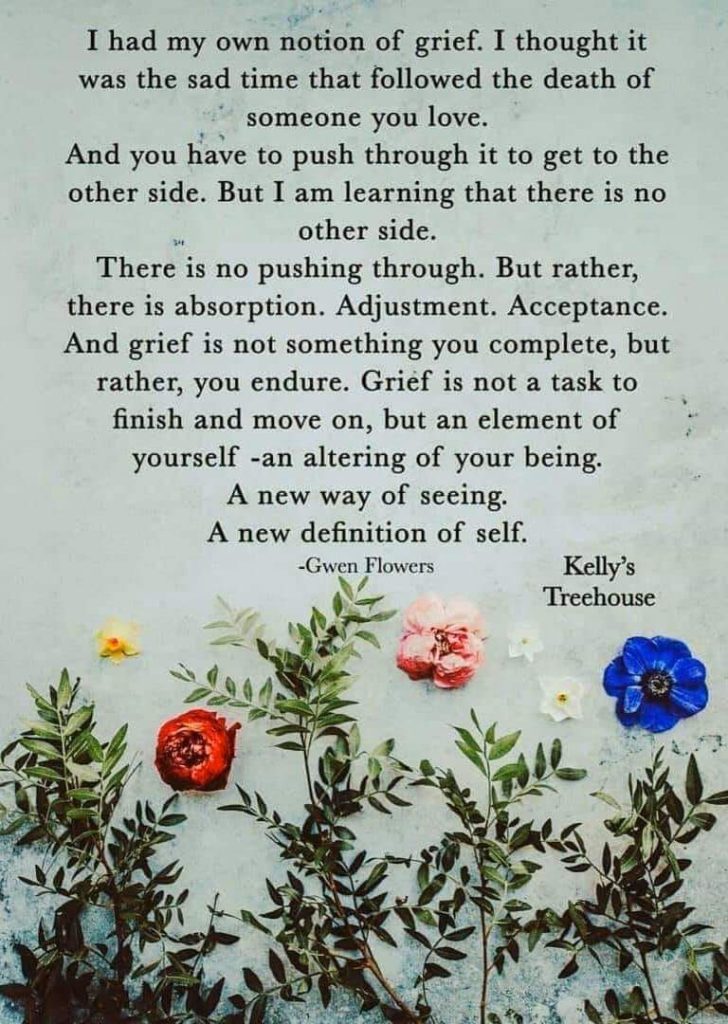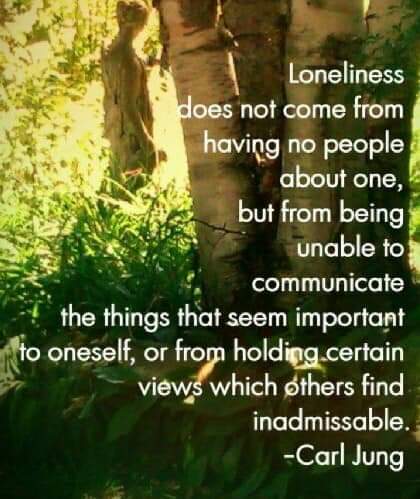Facebook group for any fellow counsellors living/working in Wales to share ideas and best practice.
https://www.facebook.com/groups/559766734838124/

Facebook group for any fellow counsellors living/working in Wales to share ideas and best practice.
https://www.facebook.com/groups/559766734838124/

One of my favourite artists, this is for anyone in the UK waking up feeling despondent today, his message..’don’t go giving up now’.
(If you are offended by strong language you will probably want to give it a miss!)
Here is a link to my page at Counselling Directory:
https://www.counselling-directory.org.uk/counsellors/nicola-pruce

I’m going to be offering counselling outside of the therapy room. Walking in nature has so many benefits, both mental and physical.
Barry’s west end, where I am based, has such a beautiful coastline and country park. Watch this space for further information..


I’ve been guilty of talking about grief in terms of ‘tasks’ and ‘working through it’ as have some of the great writers about bereavement. But maybe there is another way, a way that honours.. not forces the process? A gentler way? My own grief has hit full force this weekend.
As a counsellor, I learned very quickly to bracket my own personal feelings, my own grief, in order to sit with my client and experience their inner world..
Therapists Have Problems too… “the crazy shrink you might think” Mental health professionals are, in general, a fairly eccentric and deeply conscious lot—
They have probably experienced personal stress, divorce, anxiety, relationship problems, loss, abuse and other life trauma — psychologists, counsellors, social-workers and other mental health professionals may have actually been more screwed up than the rest… however, this is their gift.
In fact, some experts believe that therapists who have suffered in certain traumatic ways may be the very best therapists we have, this is what makes a therapist really good! Most mental health professionals choose to this line of work in order to help others who are less empowered in these situations; the therapist may have gone through it, learned the tools, did the degrees, and came out on the other end to be of service and guidance… with higher levels of empathy, understanding, non-judgement and knowing how to support. This “wounded healer” concept is woven into the fabric of the mental health professions. But this is their gift. They can see and support hundreds of people in need of ‘healing’ in a month. Most people in general can’t even listen to you for just a few minutes…
So why see a therapist? Because these professionals are regulated and vetted, degreed and experienced – they probably know what not to do in life, they have better life tools to share with you, they can support you in navigating your way through each life crisis or trauma to a point of personal & psychological stability and empowerment, because they may have gone through it too. (remember doctors get sick, therapists get anxiety and stress, nurses & doctors smoke and drink etc… this does not mean they are bad at what they do – because they know how to have professional boundaries.)
Reference–Robert Epstein Ph.D., Tim Bower.

It is often said that one can be surrounded by people and yet still feel lonely. Jung explains this as being unable to communicate one’s feelings, or from fear of communicating them, because they may be met with disapproval. Person centred counselling provides a relationship that is often lacking in the lives of many people. It’s core values are empathy, remaining genuine and accepting of the client and their needs. It’s about a collaboration between therapist and client, with an awareness that the client is the expert in their own life, how they experience how it is to be them, with all of the complexities that come with being human. It comes with an understanding of not wanting to ‘fix’ the client, but rather bringing about change by carefully listening to their concerns, gaining clarification of what is meant, reflecting back to the client what has been understood, having enough curiosity to explore links and meaning, with the intention of bringing about a greater understanding of self, or self awareness. These new insights, sometimes referred to by therapists as ‘lightbulb moments’ can provide a catalyst for the client to bring about significant change in order that they can live a more meaningful life.

In writing this short article I should like to give credit to the two Carl’s, firstly to Jung, who’s prolific writing heavily influences my day to day work, and Rogers, pioneer of the person centred approach I was privileged to train in and that underpins all that I do.